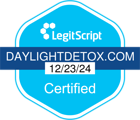Many people falsely believe that they are cured after finishing rehab. They believe they will be able to return to their previous lives – minus the substances – and be able to function perfectly fine. Unfortunately, this is rarely the case. Most people need ongoing care and support to prevent relapse. They must also make lifestyle changes that are conducive to recovery. An individualized drug and alcohol rehab aftercare program can help individuals stay sober and thrive after treatment.
Discharge Planning at the End of Treatment
Towards the end of a person’s treatment stay, he or she will be given a discharge date. This date is the day when the person will leave the rehab facility. Before the person leaves treatment, he or she will meet with a substance abuse counselor to develop a drug and alcohol rehab aftercare plan. Discharge planning refers to the careful creation of this aftercare plan.
Upon meeting with an addiction counselor, patients are educated on their different aftercare options. They discuss their concerns and goals with their counselor and figure out which forms of aftercare they will participate in. Then, when the patient leaves rehab, he or she is expected to begin aftercare immediately.
The Importance of Aftercare
Drug and alcohol rehab aftercare is meant to help support patients who are in early recovery. Leaving rehab isn’t easy. Whether a person has completed a 30, 60, or 90-day program, it can take some time to adjust back to the real world. And, this adjustment period isn’t always easy – especially without substances to lean on. Aftercare programs help reinforce the coping skills patients learned during rehab so they can avoid a relapse. Having an aftercare plan in place before leaving rehab can make the difference between relapse and recovery.
Options for Drug and Alcohol Rehab Aftercare
There are many options available for aftercare. Many people will participate in one, two, or more forms of aftercare.
Outpatient Program (OP)
Outpatient is the lowest level of care in addiction treatment. Patients attend group therapy sessions 2-3 days per week to help hold them accountable. By this point in rehab, patients should be showing an ability to care for themselves, maintain a routine, and apply the coping mechanisms they learned in rehab in their everyday lives. Group sessions serve as a check-in to discuss issues, celebrate milestones, and share successes.
Sober Living
Sober living homes are drug and alcohol-free living environments for people who have completed rehab. Individuals are required to take random drug tests, follow strict house rules, pay their rent, and work a recovery-based program. Although sober homes do not provide any formal treatment, they do provide a safe and supportive living space for like-minded individuals to help each other in early recovery.
Alumni Program
Many addiction treatment centers in West Palm Beach have alumni programs to keep past patients connected with one another and provide them with a community of support. Alumni groups may hold 12-Step meetings together, volunteer in the community, or hold recreational events like picnics, sports games, or nature walks. Alumni groups consist of people who have been sober for several years and those who have only been sober for a couple of months. The diverse members of these groups can lend their support to one another in times of need.
12-Step Fellowship
12-Step fellowships, such as Alcoholics Anonymous (AA), Narcotics Anonymous (NA), and Cocaine Anonymous (CA) hold free, hour-long meetings where members gather to share their experience, strength, and hope. These programs are spiritual in nature by encouraging individuals to rely on a Higher Power to stay sober. 12-Step programs also promote the idea of sponsorship. Sponsors take their sponsees through the 12-Steps to provide them with guidance and help them recover. Fellowships such as these can help promote long-term sobriety and teach individuals how to live without drugs and alcohol.
Some people don’t take to spiritual programs well. Fortunately, there are 12-Step alternatives available. These include SMART Recovery, Celebrate Recovery, LifeRing, Refuge Recovery, and more.
Individual Counseling
Many individuals may benefit from individual counseling sessions as a part of their drug and alcohol rehab aftercare. Individual counseling can help address underlying issues, stay on top of current and new issues, and help provide individuals with continued support. This counseling could be at the rehab center or at a privately selected therapist’s office.
Start Addiction Treatment in West Palm Beach Today
Here at Daylight Recovery Center, our team of qualified addiction specialists recognizes that, while valuable, rehab isn’t enough to keep a person sober. A thorough drug and alcohol rehab aftercare plan, however, can help guarantee a person’s sobriety after rehab. That’s why the last step of our treatment program involves personalized discharge planning – so patients can access an aftercare plan that meets their needs.
To learn more about our treatment programs or to find help for a loved one, contact us today.



